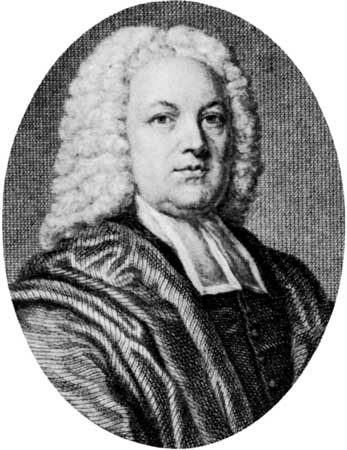I’ve just finished yet another book in the series Eighteenth-century Shakespeare, this time called The Canons of Criticism, by Thomas Edwards, first published in 1748, and reissued six times thereafter, finally stopping in 1765. The book is a critique of Bishop Warburton’s 1747 edition of Shakespeare’s works. It functions by fulfilling Warburton’s over-ambitious promise of a “supplement” (including “canons of criticism” and “glossary”) to his edition for him, albeit extremely critically. The first “Canon”, which Edwards claims to have kindly extracted from Warburton’s editing style, provides sufficient example of his intent:
A Professed Critic has a right to declare, that his Author wrote whatever he thinks he should have written; with as much positiveness as if he had been at his Elbow.
Unsurprisingly, Edwards was repeatedly denounced by Warburton, but still continued needling the Bishop, hence the seven editions from 1748 to 1765. In many ways, this book offers a fairly typical example of the pamphlets (and books) published as part of the long wrangle over editing Shakespeare. As I read it, though, I was interested in how much a text so deeply embroiled in debates of punctuation and glossing looked out to other spheres in which Shakespeare was active, such as references to French learning or invocations of how Shakespeare in performance..
The short answer is: not much. But then, I wasn’t expecting there to be, given that Edwards is so focussed on demolishing Warburton’s editing. Rather, what little I did find on the edges of the work was of some interest to me, and, as far as I know, unremarked by others.
First up, references to France. There are two things I noticed here. First, that any reference by Edwards to the world beyond the shores of Britain occurs only when Warburton instigates it: thus French neoclassical authorities like Bossu, Rapin or Dacier only crop up when the Bishop has (in the judgment of this text) misapplied them. Second, that by far the most frequent subject of references to France is the critique of Warburton’s attempt to insert French words into cruces of Shakespeare’s text. Here’s one neat example:
Examp. IV. Vol. 4. P. 97. I HENRY IV.
“No more the thirsty entrance of this soil
Shall damp her lips with her own childrens blood.”
“Shall damp her lips] This nonsense should be read, shall trempe [from French, “tremper”, to soak], i.e. moisten; and refers to thirsty in the preceding line.” WARB.
Why must this be nonsense? And why must Shakespear thus continually be made to use improper French words, against the authority of the copies, instead of proper English? […]
There’s a tasty mix of patriotism (“proper English”) and editorial method (“authority of the copies”) here, but my problem is that these attacks on Walpole are not confined to his use of French: Italian, Latin, and Greek references all come under fire. This leads to a larger question about whether my thesis is solid enough if I focus just on French influences and appearances, since in cases such as these, all I end up doing is dismantling a jingoistic view of Shakesepeare in the period for a marginally less myopic binational version of events.

I’ll file that doubt for now.
The second marginal aspect of this text that caught my eye was references to the stage. These can be hard to identify: when Edwards talks about the effect of a line “on the hearers”, he is manifestly more interested in Shakespeare the poet than Shakespeare the dramatist, for example. Indeed, the frequent appeals to “a reader of common sense and common attention” make it clear why the stage does not often appear.
Nevertheless, there are a few useful tidbits. First is the common anitpathy of the textual critic to the actor. Edwards quotes Pope for the idea that the corruption of the text is the fault of the Jacobean actors’ sloppy habits, and then, in a sonnet at the end of the book, reiterates the point with talk of “the rubbish cast on thy fair page / By Players or ignorant or forgetive”. Yet for all this antipathy, Edwards is not above castigating Warburton for misdescribing passages as “interpolations of the players”, and, on one occasion, wryly remarks that such categorisation is all too easy, and leads to poor editing.
One final point about the theatre in this volume. After chipping away at Warburton for two hundred or so pages, Edwards copies in a series of remarks from a “Mr [Richard] Roderick”, included for their “acute yet sober criticisms of Shakespeare’s text”. As well as much on textual matters, Roderick also turns to performance when trying to explain all the shifts of emotion in Lear, observing that “the Looks of the Actor would convey the sentiment more effectually, than any explanation can do”. Given that Garrick was starring as Lear at this time, I suppose though, that it is not too surprising that the path from textual criticism to reflections on the actor should run through the stormy heath.
That said, the existence of such a path at all is important, and makes for an interesting, if unconsidered trifle to snap up.